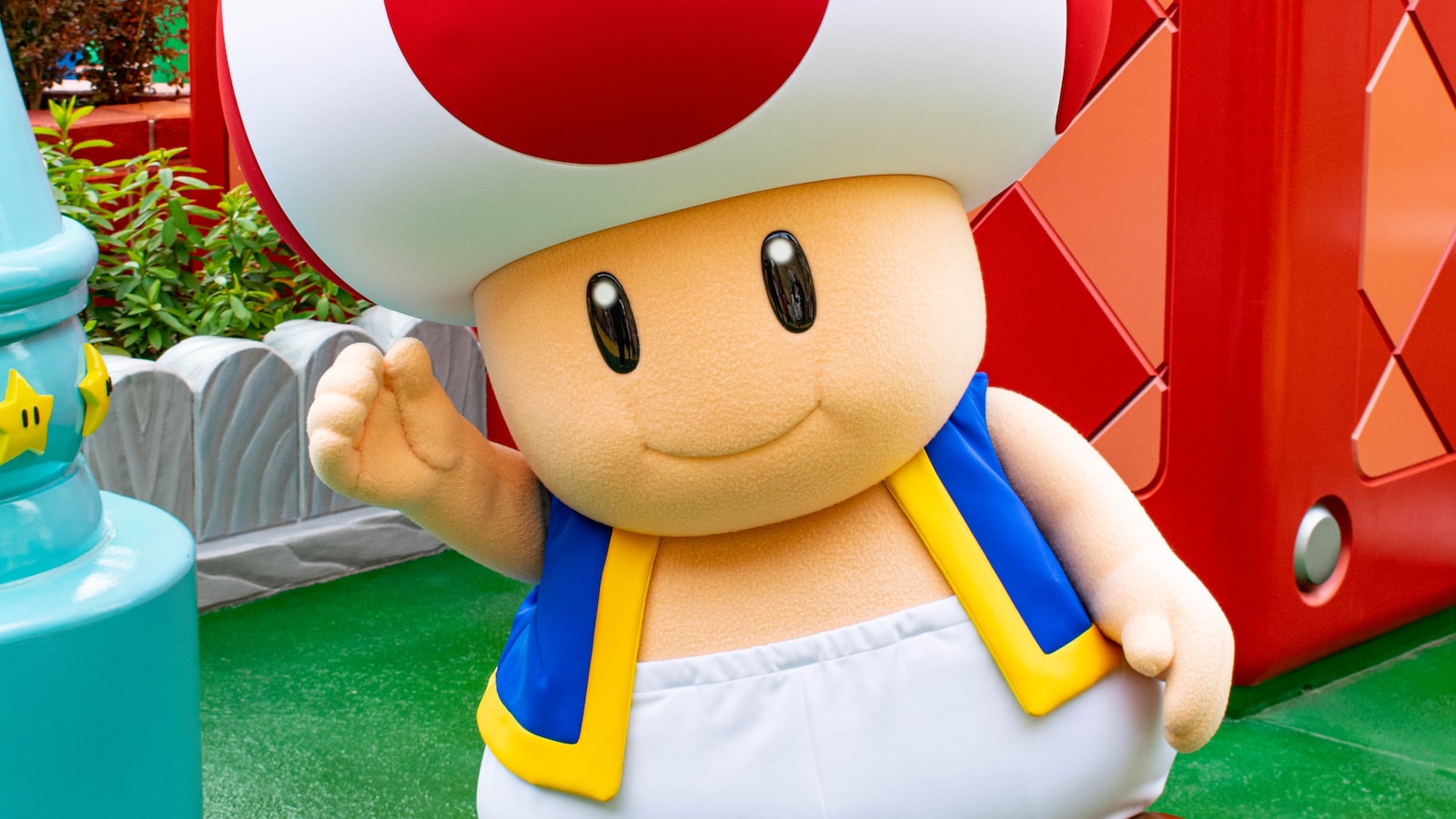Step into the world of gaming, where virtual adventures and unexpected challenges await. In this captivating realm, players are not merely spectators; they become the heroes and heroines, the wizards and warriors, the architects and artists. As gamers embark on thrilling quests and navigate treacherous landscapes, their emotions become inexplicably entwined with the virtual experiences. Whether it be the exhilaration of a victorious battle or the heart-wrenching defeat, the emotional rollercoaster of gaming is an undeniable aspect of this ever-evolving industry. In this article, we delve deep into the intricate relationship between gaming and human emotions, exploring the profound impact that games have on the players’ feelings and the intricacies of emotion management within this immersive digital landscape. So, grab your controller and join us as we journey into the enthralling world of emotion management in gaming.

The Emotional Rollercoaster: Exploring the Impact of Gaming on Player Emotions
Immersing oneself in the world of gaming can be a wild ride, filled with twists and turns that evoke a plethora of emotions. From heart-pounding excitement to nail-biting suspense, gaming has the unparalleled ability to captivate players and elicit emotional responses unlike any other form of entertainment. Delving deeper into this phenomenon, we uncover the profound impact that gaming has on player emotions, making it an unparalleled emotional rollercoaster.
At the core of this emotional journey lies the element of suspense. As players embark on virtual adventures, they are confronted with unexpected challenges, thrilling them with the fear of the unknown. The anticipation of overcoming these obstacles creates an adrenaline rush that can elevate heart rates and leave players feeling exhilarated. However, gaming also has the ability to evoke feelings of frustration and anger when players fail to conquer a specific level or defeat a formidable opponent. These frustrating moments, while initially disheartening, challenge players to persevere and can ultimately lead to a sense of accomplishment, boosting their self-esteem and fostering resilience.
Unearthing the Science Behind Emotional Responses to Video Games
In the ever-evolving world of video games, there is no denying the powerful emotional impact they can have on players. The exhilaration of a victory, the frustration of a defeat, or the awe-inspiring beauty of a virtual world – all these experiences can elicit profound emotional responses. Uniting artistry and technology, game developers have mastered the art of crafting captivating narratives and immersive gameplay, intentionally designed to trigger a range of emotional reactions.
At the core of understanding the science behind emotional responses to video games lies the field of psychology. Researchers have long been intrigued by the psychological effects that games can have on players. It is well-documented that video games can evoke strong emotional responses due to several factors, including but not limited to:
- Immersion: The ability of video games to transport players into another world can create a deeply immersive experience, making it easier for players to emotionally connect with the game.
- Challenge: The level of difficulty within a game can stimulate a gamut of emotional responses, ranging from joy and pride when overcoming obstacles to frustration and anger when facing defeat.
- Storytelling: Narratives in video games have become increasingly complex and sophisticated, weaving intricate storylines that engage players on an emotional level, fostering empathy and investment in the characters and their plight.
- Interactivity: The interactive nature of video games allows players to make choices and actively participate in the game world, resulting in a sense of agency and emotional impact as decisions have consequences.
These are just a few elements among a plethora that contribute to the emotional rollercoaster players experience while indulging in video games. By unraveling the science behind these emotional responses, researchers seek not only to understand the psychological mechanisms at play but also to harness the potential of video games for therapeutic interventions, education, and creative expression.
Harnessing Emotion for an Enhanced Gaming Experience
Immerse yourself in a world where every emotion counts. Gaming has evolved beyond mere entertainment; it has become an avenue to explore and experience a wide range of emotions. By harnessing emotions and incorporating them seamlessly into gameplay, the gaming industry is revolutionizing the way we interact with virtual worlds.
Picture this: a heart-pounding chase through a labyrinthine city, pursued by a relentless enemy. Your palms sweat as you desperately try to outsmart them. Suddenly, a pulse of fear courses through your veins as your character is caught, triggering a jolt of adrenaline that heightens every sensation. With advancements in haptic technology, you can feel the tension in your fingertips and the rush of excitement in your chest, truly blurring the line between reality and the digital realm. Through the captivating mix of visuals, soundscapes, and interactive storytelling, gaming can now tap into the deepest corners of your psyche, leaving you breathless and hungry for more.
- Experience a rollercoaster of emotions – from exhilaration and joy to fear and sadness – as games adapt to your responses in real-time.
- Emotional immersion like never before, where the boundaries between the player and the protagonist fade away, allowing for a deeply personal connection.
- Bold narrative choices that provoke thought and meaningful exploration of moral dilemmas, challenging your empathy and decision-making skills.
This new frontier in gaming puts you in the driver’s seat of your emotional journey. Don’t merely play games – be an active participant in a rich tapestry of human emotions. Grab your controller, brace yourself for a wild ride, and prepare to be moved like never before. Welcome to a gaming experience where your emotions shape the destiny that unfolds before you.
Strategies for Managing and Channeling Emotions in Gaming
When immersed in the captivating world of gaming, emotions can run high – from exhilaration and joy to frustration and anger. The key to a satisfying gaming experience lies in effectively managing and channeling these emotions. Here are some creative strategies to help you navigate the emotional rollercoaster of gaming:
- Practice Mindfulness: Before diving headfirst into a gaming session, take a few moments to center yourself and practice mindfulness. Paying attention to your thoughts and emotions can help you identify any existing stress or agitation and address them before they influence your gameplay.
- Create an Emotions Journal: Keep a dedicated journal to document your emotions after each gaming session. Reflecting on your feelings can provide valuable insights, helping you identify patterns and triggers for both positive and negative emotions. This self-awareness can guide you in making mindful adjustments to your gaming routine, leading to a more balanced emotional experience.
- Engage in Physical Activity: Incorporating physical activity into your gaming routine can help channel and release any pent-up emotions. Take breaks between gaming sessions to stretch, go for a walk, or engage in a quick workout. Not only will it provide a refreshing change of pace, but it can also serve as a healthy outlet to release any built-up tension.
- Cultivate a Supportive Gaming Community: Surrounding yourself with like-minded individuals who understand the emotional ups and downs of gaming can be tremendously beneficial. Find online forums, social media groups, or local gaming communities where you can freely discuss and share your experiences. Supportive communities can offer empathy, advice, and camaraderie, helping you feel understood and validated.
Remember, gaming is meant to be an enjoyable pastime, and being in control of your emotions enhances the experience. By implementing these strategies and finding what works best for you, you can transform the emotional rollercoaster into a ride of self-discovery and personal growth.
Concluding Remarks
As we delve into the captivating realm of gaming, it becomes clear that emotions are not merely an accessory to the experience, but rather the very essence that intertwines with our gameplay. From soaring elation to heart-pounding anxiety, games have an uncanny ability to ignite a vast array of emotions within us, capturing our hearts and minds.
In this journey through the intricate labyrinth of emotions in gaming, we have explored the dynamic interplay between games and our innermost feelings. We have witnessed how games can transport us to realms brimming with joy, where every victory is a symphony of triumph, and every achievement sparks a blaze of satisfaction deep within our souls.
Yet, we have also acknowledged the darker side of the emotional spectrum, where games can elicit feelings of frustration, anger, or even sadness. The fierce battles, the agonizing defeats, and the unexpected plot twists have the power to stir within us a tempest of emotions, reminding us of the fragility and unpredictability of our virtual quests.
While the impact of games on our emotions is undeniable, it is crucial to recognize the significance of emotion management within the gaming realm. As players, we must navigate the turbulent seas of our feelings, ensuring that our emotional responses enhance rather than hinder our gaming experience. It is through this delicate balance that we can truly savor the rich tapestry of emotions woven by the game developers’ artistic hands.
Embracing emotion management in gaming allows us to unravel profound narratives, become empathetic explorers, and unlock the doors to self-discovery. It empowers us to embrace vulnerability, resilience, and the multifaceted nature of our emotions. Together, games and emotions become a harmonious symphony, painting a vivid portrait of the human experience within the digital realm.
So, as we bid farewell to this expedition into the mesmerizing world of emotions in gaming, let us remember that gaming is not just a vessel of entertainment, but an extraordinary platform that dances with our hearts and amplifies our emotions. Let us embrace what these interactive art forms have to offer, for they possess the power to enthrall, enlighten, and enrich our lives.
In the end, it is through the fusion of emotions and gaming that we embark on a transformative odyssey, where pixels and pixels alone can provoke laughter, tears, and everything in between. May we always cherish the emotional depth that games bestow upon us, and may our journeys through the virtual realms continue to be a testament to the indelible bond between our emotions and the infinite possibilities of the gaming universe.
Video game development in recent years has become a tool that allows developers to create an experience that appeals to the player’s emotions. Game developers have become increasingly advanced at manipulating and understanding the emotional responses of players by utilizing a concept called emotion management. By utilizing emotion management, programmers create a unique and authentic gaming experience that not only thrills its users but also sparks emotions of joy, pain, joy and frustration in the players. Here we’ll discuss emotion management, how it works and how it affects gaming and the players that take part.
The concept of emotion management in gaming revolves around the idea of manipulating human emotions during the game. Interestingly, this concept is not new; it’s been used in other media, such as cinema and television. To put it simply, emotion management in gaming is about utilizing the sound, music, visuals and scripting of the game to evoke emotion from the players, encouraging them to progress and stay engaged.
Game developers employ a range of tools to achieve this. Music and sound effects are commonly used to create a feeling of suspense or excitement in the gaming experience, while visuals are also critical for the emotional atmosphere that the player experiences. Developers also use seemingly mundane elements such as color, lighting and level design to achieve the desired emotional result.
The emotional responses a gamer has during a game are both varied and important. Good emotion management should not only ensure the game flow is running smoothly, but it should also leave an emotional impact on the player. It’s just as important for the developers to know how to elicit positive emotion as it is to manage negative emotion, and this is accomplished by ensuring the pacing and difficulty are appropriate for the level being played.
Emotion management has been shown to have major impacts on the gaming experience. Studies have indicated that players develop an emotional attachment to games that utilize emotion management. This has motivated game developers to continue to use this concept as it encourages players to stay longer and even return to the game periodically.
It is evident that emotion management is a key concept development for game developers and players alike. It is clear that emotion management offers a unique and engaging gaming experience and allows players to develop meaningful emotional attachments within the game. With the prevalence of emotion management in today’s gaming industry, it is likely that more advanced emotional manipulation techniques and systems will be developed in the future.



